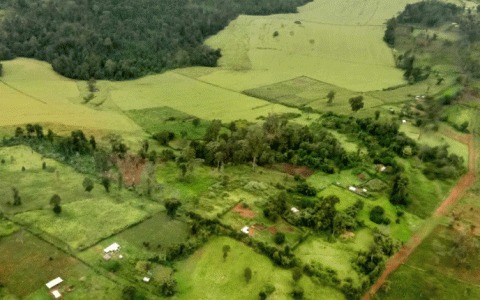State was-ill prepared on lifting of logging ban

The Government recently lifted the ban on logging. The objective, as stated by the Government, was to rejuvenate the timber industry that was very adversely affected by the ban.
However, no sooner had the Government lifted the logging ban than Kenyans invaded forests, burning charcoal and even expropriating forest land and leasing it. This is from none other than the person mandated to protect those very forests, Environment Cabinet Secretary, Soipan Tuya.
It looks like the Government did not think this thing through and lifted the ban when it was ill-prepared to do so.
First, the decision to lift the ban on logging is a sound one. The sawmilling and timber industry is a key economic sector in Kenya, with potential for employing thousands, attracting huge investments in the wood-based manufacturing industry, and huge forward and backward linkages.
But because of the very reasons why the ban was imposed in the first place, the Government should have ensured critical safeguards were in place to guarantee a safe reopening that did not endanger Kenya’s forests, already reeling from multiple threats.
The Government should have mapped out all forests, especially those most vulnerable, and properly secured them. The increased forest guards CS Tuya talks of employing should have been in place before the lifting was done. Policing is critical now that the ban has been lifted. Kenya is a country steeped in corruption.
If the laissez-faire attitude that the CS Environment has so far exhibited is what will continue reigning in this new dispensation, expect no forests in Kenya in the next five years. That ban had been imposed for a reason!
There are now complaints of favouritism in giving out permits for logging. Again, this will just sully the whole initiative of rejuvenating the timber industry. These procedures should have been streamlined, made transparent and accountable, and made public.
Transparency is very helpful in addressing corruption. CS Tuya, there is a lot of work for you to do, and your assurances that there is no cause for concern is itself a major cause for concern.
The Government needs to take care that a well-meaning directive does not become bastardised beyond recognition. Kenyans will recall that former President, Uhuru Kenyatta, removed the ban on matatu graffiti that had been put in place by new rules implemented by late Transport Minister, John Michuki.
The matatu industry used this pronouncement to roll back all the gains that had been made in getting that sector disciplined. Today, you cannot recognise the matatu sector that Michuki left- it has gone completely rogue.
The key question for Government is- is there a masterplan for tree growing in Kenya? Yes, the Government is targeting to plant 15b trees in 10 years, but getting the country’s forest cover to a critical mass is only one part of the story.
A comprehensive masterplan is needed to take care of all the needs for trees in the country. Commercial logging is the private sector counterpart to tree planting for conservation purposes. On this aspect, the Government seems to be completely lost.
Take care of commercial tree growing to feed the ravenous appetite for timber and even charcoal in Kenya. Put in place a plan that will see commercial trees planted under a targeted plan every year, based on the country’s current and projected timber needs going forward. Indeed, the Government can offer incentives for investors in a bid to ensure there is surplus wood for export.
Give incentives for investors to go into serious commercial tree growing, so that serious investors can start doing this on thousands of hectares of land.
Forests will forever be under pressure if the country does not institute a plan to satisfy the demand for timber and wood based products like furniture. The current crisis facing forests is purely due to successive
Governments not talking this docket seriously enough to develop a masterplan that tackles the need for satisfying the various demands for growing of trees. And only paying lip service to conservation of forests.
– gathukara@gmail.com












